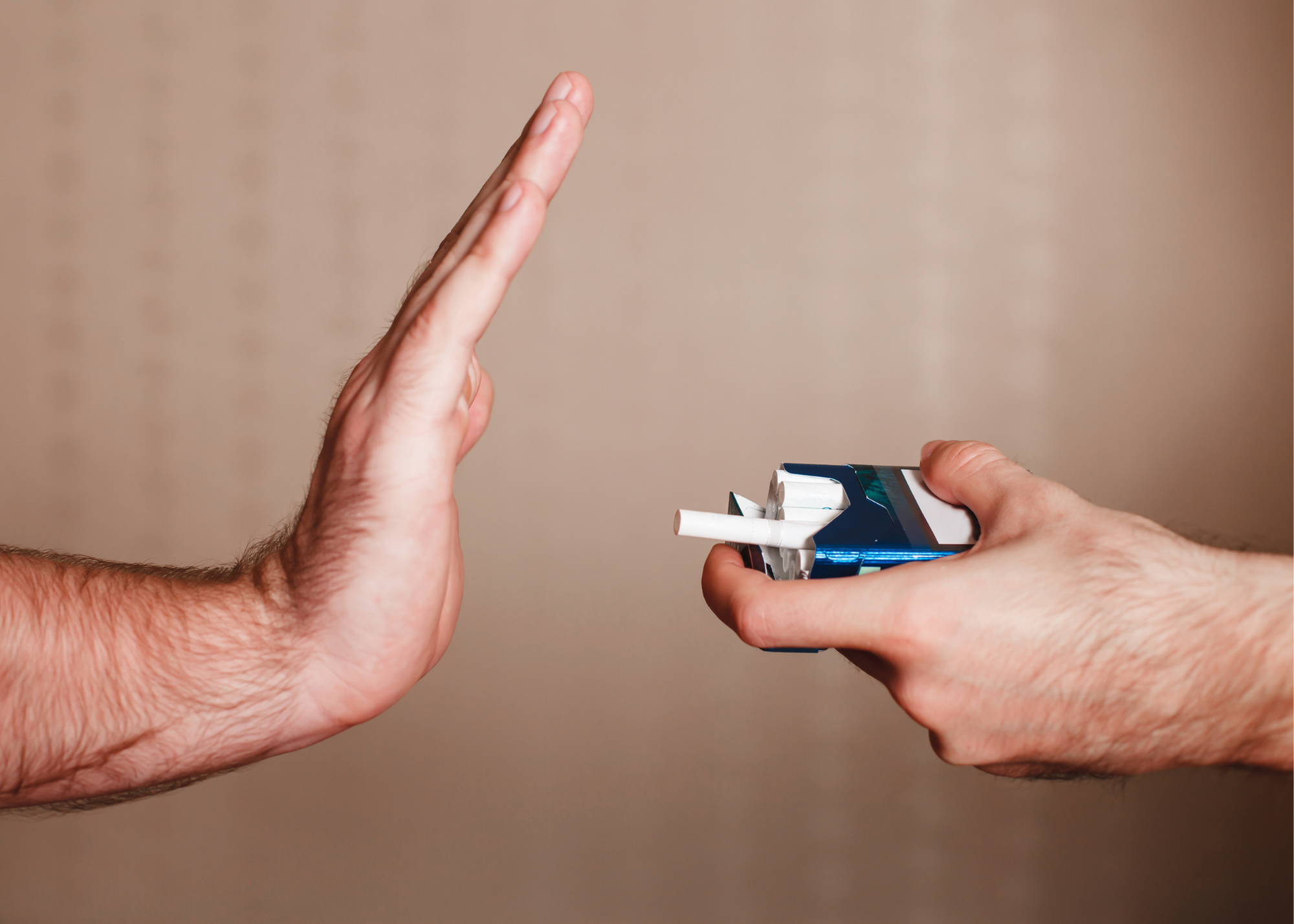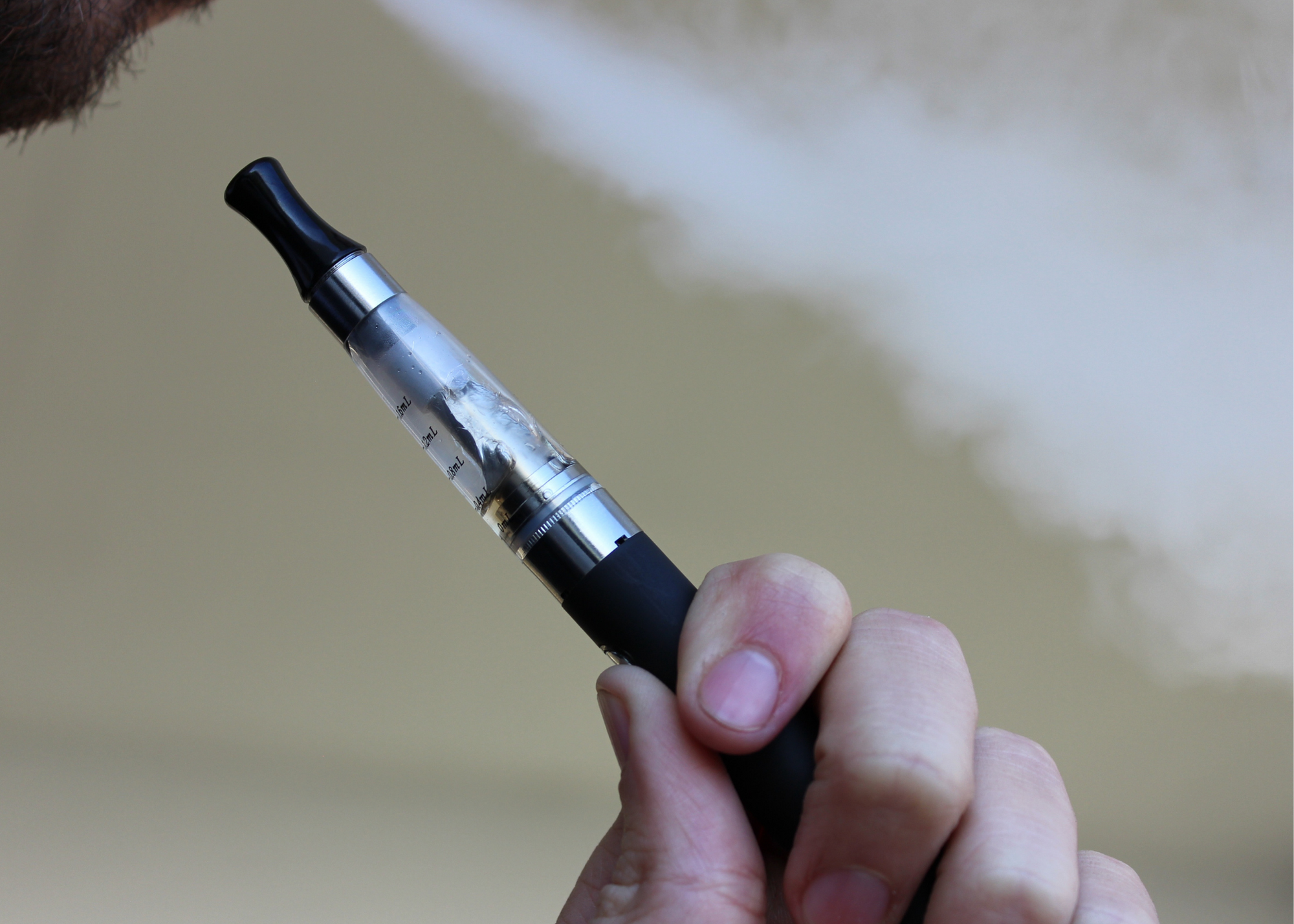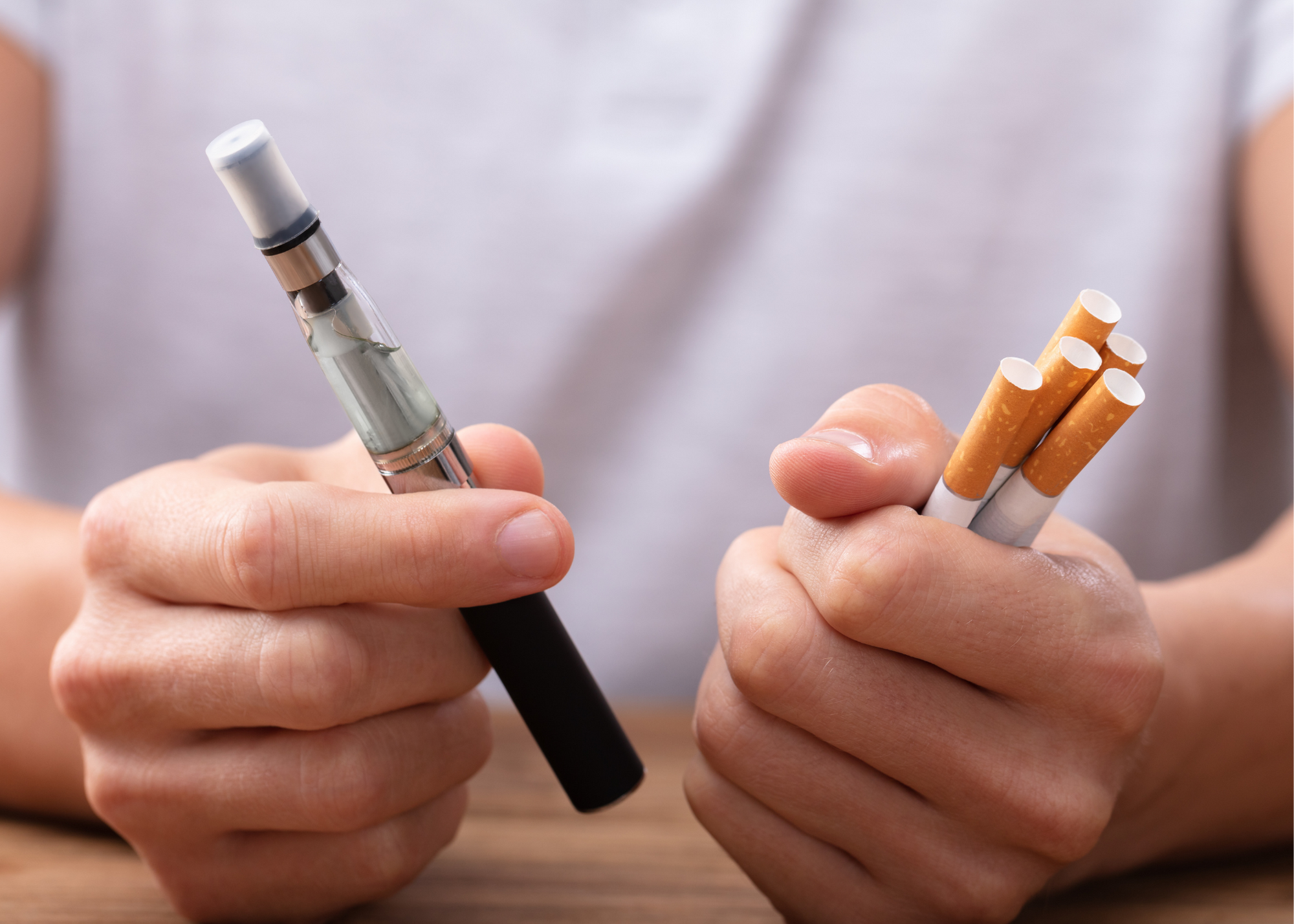If you’ve been thinking about cutting back on cigarettes, one solution you might have seen or considered is the e-cigarette. You might have seen them touted as a cheaper, safer, or cleaner option than cigarettes, free of many of the toxic chemicals that are found in cigarettes.
Okay people. Buckle up for some tough love because this might not be the answer you want to hear. If you’re thinking about cutting back on smoking to improve your health and overall quality of life, there are many ways to do that.
Vaping is not one of them.

In fact, short of doing nothing, vaping is probably the very worst way that you can try to cut back on cigarettes.
There are many, many options that you can try that involve actually ending your use of devices that allow you to ingest nicotine and other toxic chemicals, and that allow you to break your addiction to nicotine entirely so that you can function without it.
E-cigarettes do none of those things.
What are e-cigarettes? How do they work?
E-cigarettes are battery-operated objects (that most often look like a cigarette, cigar, or a pen). They contain a cartridge full of liquid that contains nicotine, flavorings, and other chemicals. When you inhale into an e-cigarette,
Are e-cigarettes safer than traditional cigarettes?
The one thing that e-cigarettes might have going for them is that they are less harmful than cigarettes. But again, the bar is pretty low here, and even though e-cigarettes are less bad than traditional cigarettes, they’re definitely not good for you.
Regular tobacco cigarettes contain 7,000 chemicals. While we don’t know exactly what chemicals are in e-cigarettes, “there’s almost no doubt that they expose you to fewer toxic chemicals than traditional cigarettes,” says Michael Blaha, MD, MPH, a director of clinical research at Johns Hopkins University.

The biggest danger of e-cigarettes is how much we don’t know: we don’t know all of the chemicals in e-cigarettes, and we don’t know what the long-term effects are. Initial research has shown that the medium-term and long-term effects probably aren’t good, though. Vaping has been linked to chronic lung injuries and other conditions.
As of early 2020, there were more than 68 deaths directly related to injuries from e-cigarettes. And that doesn’t even include cancer or other lung diseases - because e-cigarettes do contain ingredients that cause cancer.
“Emerging data suggests links to chronic lung disease and asthma, and associations between dual use of e-cigarettes and smoking with cardiovascular disease,” Blaha said. You’re exposing yourself to all kinds of chemicals that we don’t yet understand and that are probably not safe.”
Will e-cigarettes help me quit smoking?
The general consensus on this is no. There is limited evidence that e-cigarettes will help you quit smoking, and e-cigarettes are not approved by the FDA as a smoking cessation tool, the way that nicotine replacement therapies are.
E-cigarettes still contain nicotine, plus a ton of other ingredients that we don’t know the immediate effects of. You can even buy “extra-strength” e-cigarette cartridges that contain additional nicotine.
The other problem is that most people don’t just swap out their cigarettes for vape pens - they’ll use both. And so you’re not breaking your nicotine addiction, and you’re also still ingesting toxic chemicals from cigarettes and vape pens.
So best case scenario, if you’re able to use e-cigarettes to cut back on cigarettes, you might just end up addicted to something else.

What are some more effective ways to quit smoking?
Luckily, there are several ways to cut back on or quit smoking cigarettes that don’t involve continuing to inhale toxic chemicals. These include:
- Therapy: There are probably several reasons why you smoke. By working with a licensed therapist or counselor who specializes in addiction or smoking cessation, you can identify the triggers in your life that drive you to light up a cigarette. They can help you come up with strategies to combat those triggers that don’t involve smoking. For example, if you notice that one of the times you always pick up a cigarette is when you’re stressed at work, they can help you recognize when you’re starting to feel those stressors come on and pick up another stress-relieving activity, whether that’s going for a walk, calling a friend, or chewing a piece of gum or mints.
- Nicotine Replacement Therapies: You’ve probably heard of nicotine gum, lozenges, and patches. These contain small amounts of pure nicotine, but none of the other harmful ingredients from cigarettes or e-cigarettes. The recommended protocol is to use them throughout the day when a nicotine craving strikes, but over time, you’ll be able to wean yourself off your dependence on nicotine. If used correctly, this can take about 12 weeks.
- Medication: There are also prescription medications that you can use to help cut back on cigarettes, including Bupropion and Chantix. (The FDA recently issued a voluntary recall of some lots of Chantix because it might increase your risk of cancer. At the same time, the agency said that “the health benefits of stopping smoking outweigh the cancer risk [from taking Chantix].” Ask your doctor if one of these solutions could be the right one for you.

It can also be helpful to use nicotine replacement therapies or medications alongside typical therapy, so that you can shore up your support system as you work to cut back on cigarettes. The process might take some time, but the health benefits and improvements to your quality of life are sure to be worth it.
LUCY offers three innovative nicotine replacement therapy products that can help you cut back on cigarettes: the chew & park nicotine gum, nicotine lozenges, and slim pouches. Each of these products use pharmaceutical-grade nicotine and food-grade ingredients to make sure you’re getting an effective product that tastes delicious. Give them a try and let us know what you think!
Disclaimer: The information contained in this website is provided for general informational purposes only and is not intended as, nor should not be construed as a substitute for, professional medical or health advice on any subject matter. Please consult your physician regarding any medical treatment decisions.